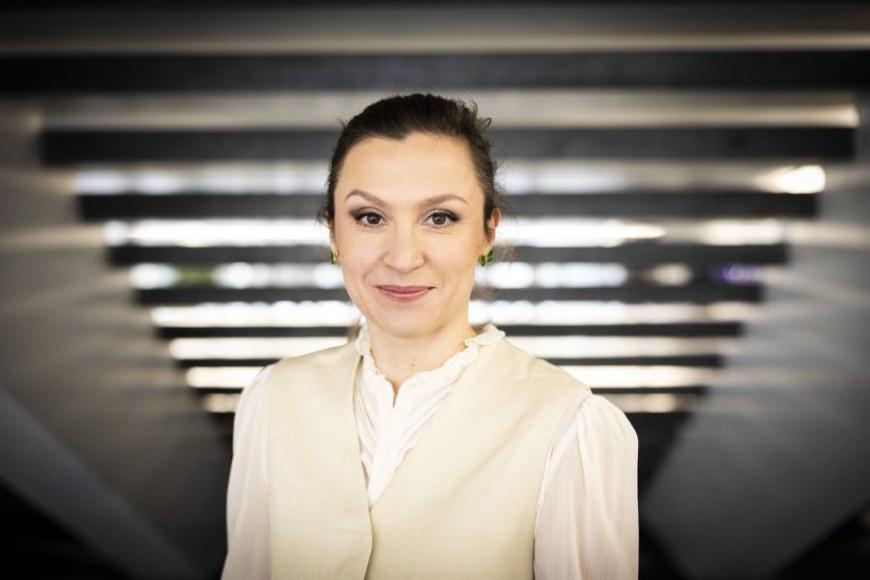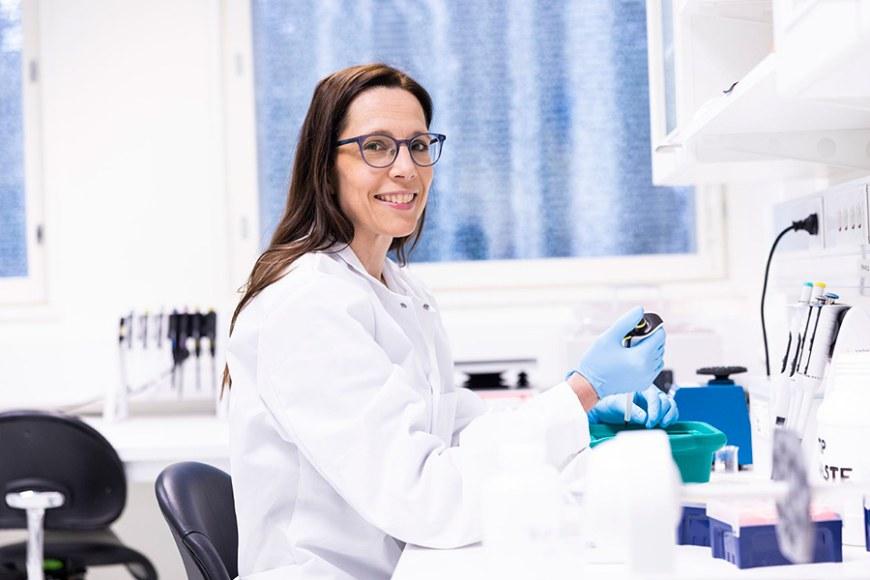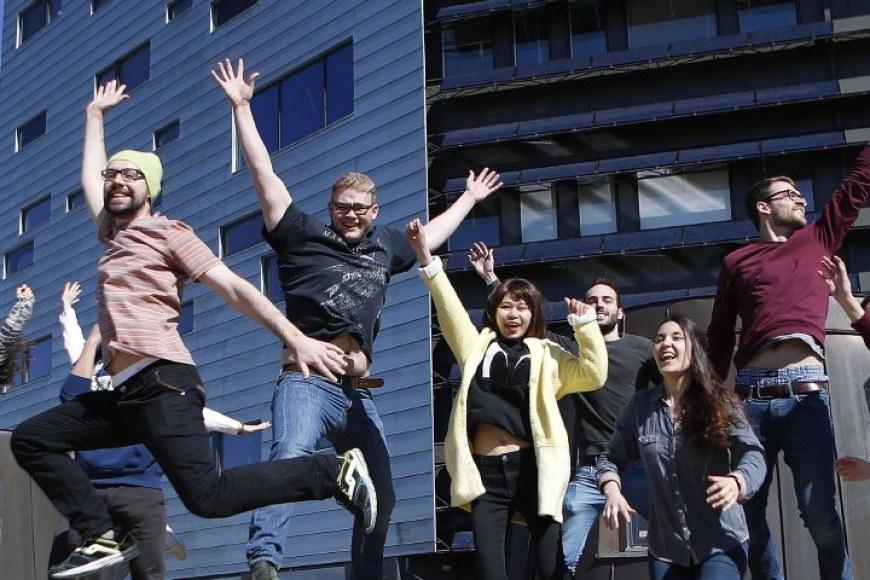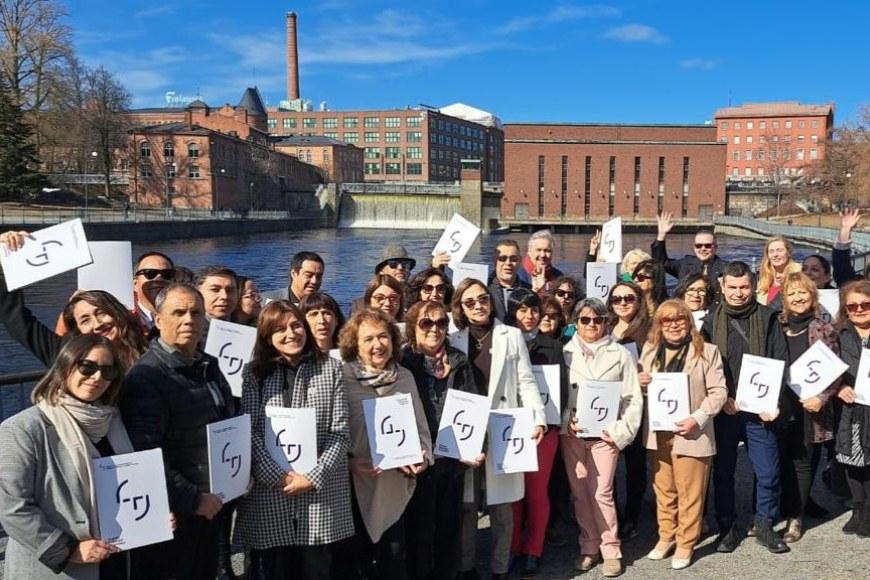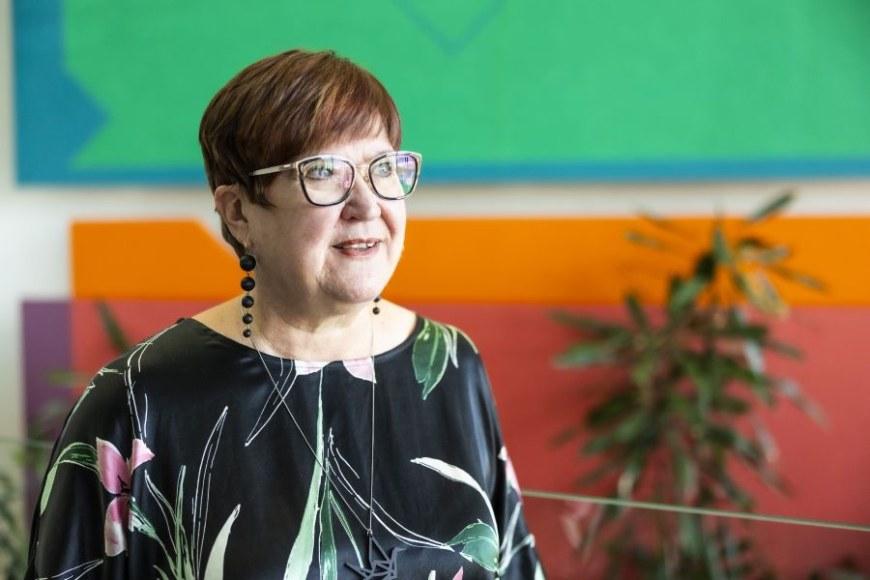Awards for societal impact and dissertations
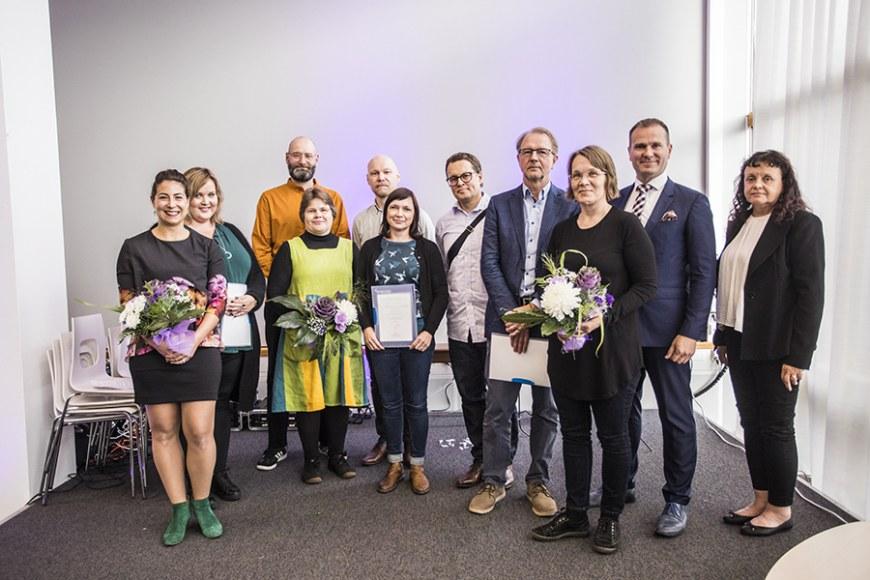
In the awards ceremony, a main award and two honorary awards for societal impact, two awards on scientific publications in the field of technology, and two awards for doctoral dissertations were presented.
Grand prize on societal impact to the Dwellers in Agile Cities consortium
The University bestowed societal impact awards for the first time. The €5.000 main award went to the DAC – Dwellers in Agile Cities research consortium, which is part of the Urbanising Society Programme funded by the Strategic Research Council of the Academy of Finland. The honorary awards of €2.500 were granted to the subject of history and the Hidden Gems project. The University of Tampere Foundation sr and Tampere University of Technology of Foundation sr funded the awards.
The Societal Interaction Council of Tampere University decided on the recipients of the awards based on proposals received from the members of the higher education community. Proposals were invited on outstanding and tangible contributions to the significant development of society, which could be acts or operational models. Further criteria were eg bold new ideas and highlighting the University’s role.
In addition to Tampere University, the Dwellers in Agile Cities consortium engages researchers from eg VTT Technical Research Centre of Finland and the Finnish Environment Institute SYKE. Researchers who work at the University come from the Faculty of Social Sciences, Faculty of Management and Business, and Faculty of Built Environment. The stated reasons for the award thank the consortium for its long-term and varied impact on society. Researchers working in architecture, social policy, regional studies, social studies and environmental policy at Tampere University have produced, among other things, the Housing Cookbook application, which is an open databank of ideas for urban dwelling.
Cooperation between researchers in environmental politics, regional studies and architecture also brought them a win in the Asuntoreformi 2020 competition organised by the city of Helsinki, Aalto University, Ministry of the Environment, and the Finnish Association of Architects SAFA. The researchers’ proposal “A city of encounters” won the category of development ideas for dwelling and was praised for its genuine multidisciplinary grasp. After the competition, cooperation based on the winning proposal has continued with the housing policy and zoning units of the cities of Helsinki and Tampere. In Tampere, the consortium has played a major role in eg planning the Hiedanranta area.
The Dwellers in Agile Cities consortium is led by Helena Leino, University Lecturer in environmental policy.
“In this project, which is funded by the Strategic Research Council of the Academy of Finland, strong engagement with stakeholders is a requirement. That is why we have sought solutions with cities, civil servants, businesses and citizens,” Leino says.
“The researchers in our project have been successful in interdisciplinary collaboration. We have worked hard to achieve our objectives. Multidisciplinary collaboration is a great goal that requires its own specific resources in order to succeed. Our entire research consortium receives this award as a great recognition of the work we are doing,” Leino adds.
Honorary awards to the subject of history and the Hidden Gems project
In addition to the grand award, two honorary awards of €2.500 were granted to the subject of history at Tampere University and the higher education community’s joint Hidden Gems project.
Granting the honorary award to the subject of history was based especially on the national and local events that were organised related to the centennial of the Finnish Civil War of 1918. History professors, university lecturers, researchers and doctoral students participated in them prominently. The University’s researchers wrote an impressive publication for the large Tampere 1918 exhibition in the Vapriikki Museum Centre and published dozens of scientific studies in both Finland and internationally.
The Civil War events attracted thousands of participants. Interviews of Tampere University’s researchers regularly appeared in various media. All these activities helped to communicate a research-based, realistic and balanced picture about the events in the year 1918 and placed the national tragedy in a broader context. This had a positive impact on the social climate and the desire to tackle social inequalities.
The Hidden Gems project, the recipient of the other honourable award, is one of the flagship projects in the Growth from international experts programme coordinated by the Ministry of Economic Affairs and Employment.The purpose of the Hidden Gems project is to find employment for the spouses of international researchers and other staff members in the university community. The employment of spouses attracts top international experts to Tampere and makes it easier for researchers to integrate into the university. In addition, the spouses’ expertise benefits the growth and internationalisation of SMEs in the region.
17 of the 35 spouses in the first two six-month pilot projects found employment.The third group of spouses, which will start in the autumn of 2019, will also include the spouses of people working for companies. In this way the impact and benefits brought by the Hidden Gems project can be communicated outside the higher education community. The Hidden Gems projects is led by International HR Specialist Marika Peltoniemi from Tampere University.
Dean Antti Lönnqvist from the Faculty of Management and Business, who chairs the Societal Interaction Council of Tampere University, presented these awards.
“Universities have traditionally bestowed annual prizes on research and education. With the new societal impact awards, we want to highlight the importance of societal interaction and impact, to profile Tampere University as a societal actor, to encourage members of the university community to devote their time on social interaction, and to highlight exemplary and successful societal interaction practices within the community,” Lönnqvist said.
Awards on scientific publications in the technological fields
In addition to the societal impact awards, two certificates of honour were granted to researchers for publication merits. Both award winners also received a grant of €2.000. The awards were granted by the Tampere University of Technology Foundation, which uses the awards to promote open publication and to reward young, promising researchers for their influential publications.
The certificates of honour went to Senior Research Fellow Eeva Järvenpää from the Faculty of Engineering and Natural Sciences and Postdoctoral Researcher Jonna Koivisto from the Faculty of Information Technology and Communication Sciences.
All Eeva Järvenpää’s publications are international co-authored publications and a significant part of them are published openly. Jonna Koivisto’s publications are the most cited ones in all the technological fields represented in the entire University. A great part of her publications is also published openly.
Professor Matti Pentti, Member of the Board of Tampere University of Technology Foundation and the Foundation’s Executive Director Mira Toroi handed out the certificates.
Dissertation prizes to Tiina Ihalainen and Tiina Keipi
In the same event, the city of Tampere’s Research Fund awarded two doctoral dissertations published at the Tampere universities in 2018. Both prizes were €5.000.
The recipients of the prizes were Doctor of Philosophy Tiina Ihalainen for her dissertation in logopedy and Doctor of Science in Technology Tiina Keipi for a dissertation in biorefining chemistry. Both dissertations were graded “Approved with distinction”.
Tiina Ihalainen’s dissertation “Incidence, risk factors and recovery of laryngeal penetration-aspiration after traumatic spinal cord injury” deals with dysphagia caused by spinal cord injuries.
The swallowing difficulties may result in aspiration, which means that thin liquids get to the patient’s respiratory tract. Aspiration is a considerable risk for fragile patients because it predisposes them for pneumonia. Ihalainen's doctoral dissertation is the first in Finland on dysphagia in the field of speech therapy and the first systematic study on aspiration caused by traumatic cervical spine cord injuries.
The video fluoroscopy data gathered by Ihalainen demonstrated that aspiration in this group of patients is most often silent and much more common than previously thought. The study also established that several clinical procedures are associated with aspiration. The significant new knowledge produced by this study has already contributed to changing the treatment practices of these seriously disabled patients.
The focus of Tiina Keipi’s dissertation “Technology Development and Techno-Economic Analysis of Hydrogen Production by Thermal Decomposition of Methane” is on counteracting climate change. The innovation studied in the dissertation can make the use of methane carbon-neutral. While methane is converted into hydrogen, the carbon content of the gas can be recovered in accordance with the principles of the circular economy and used in the production of useful chemicals.
The methods used in the dissertation can be used to design a commercial demonstration facility for this technology. If Keipi’s doctoral study is compared with international theses in the same field, the practical significance and scientific novelty of the findings is exceptionally high.
Deputy Mayor Anna-Kaisa Heinämäki presented the doctoral dissertation prizes.
